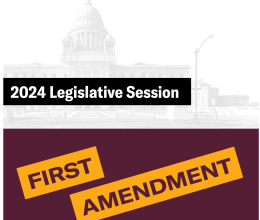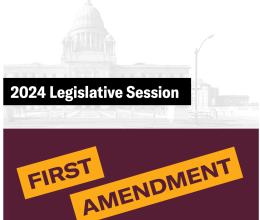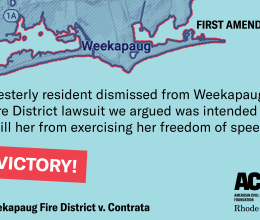At the urging of the ACLU, local media outlets and open records advocates, the U.S. District Court for Rhode Island announced that it will amend a proposed court rule that, as originally written, would have severely curtailed the First Amendment rights of lawyers, litigants and court employees.
The rule, part of a proposed comprehensive overhaul of U.S. District Court procedures released last month for public comment, would prohibit all persons involved in a pending court case from discussing outside the courtroom any information about the case that is not in the public record.
In 23 pages of comments filed in response to the draft rules, the ACLU argued that the speech restriction amounted to an unconstitutional gag order that would place undue burdens on legal professionals and litigants. The rule, the ACLU noted, “literally forbids counsel from discussing non-public facts with a potential witness,” and similarly restrains plaintiffs or defendants from discussing a case with relatives.
Chief U.S. District Judge Ernest C. Torres acknowledged in remarks to the Providence Journal that the wording of the rule was vague and indicated that it would be changed before the new rules are made final.
The ACLU also expressed concern about another of the proposed rules that would allow spectators to take hand-written notes in court only after obtaining prior approval from the judge. The ACLU questioned the need for people to identify themselves in order to take notes, and argued that many spectators would not know that advance permission was needed, while others would inevitably be intimidated by the process.
“There are many reasons that members of the public, just like members of the news media, might want to take notes of a court proceeding,” the ACLU wrote. “The only compelling justification for limiting this is to prevent disruption, something that note-taking normally will not create.”
The ACLU's written submission also addresses more than a dozen other provisions contained in the 184-page proposal.




